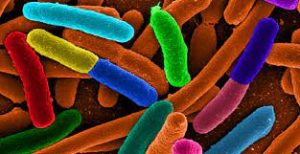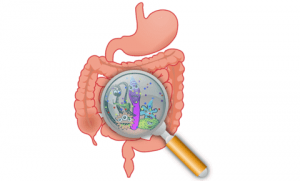If you want to keep mental clarity and health, keep an eye on your gut health. Scientists have proven that the gut and the brain are closely related. Therefore, your brain depends on the gut microflora and bacteria that live in it.

Both good and pathogenic bacteria live in the intestines. Their ratio forms the microflora. If pathogenic bacteria predominate, your gut does not function effectively.
Symptoms of microflora disorders:
- constipation or diarrhea,
- bloating,
- admixture of mucus in feces,
- intestinal cramps
- decreased immunity,
- frequent manifestations of allergies,
- skin problems,
- mucosal candidiasis,
- violation of weight.
If you have a constant overwhelming desire to eat sweets, this indicates that pathogenic bacteria predominate in your intestines. They send a signal to your brain to crave sweets. These bacteria feed on sugar. Good bacteria love healthy foods and are killed by sugar. Lack of vegetables, herbs, fruits, dietary fiber in your diet leads to a decrease in the level of good bacteria in your gut. Also, the use of a long time and an unlimited amount of simple carbohydrates disrupt the microflora.

In addition to food, microflora depends on your lifestyle and external factors:
- stress;
- taking medications, especially antibiotics and hormones,
- intestinal infectious diseases;
- alcohol;
- smoking;
- abrupt climate change;
- lack of physical activity;
- lack of fiber;
- diseases of the gastrointestinal tract.
You can influence microflora through nutrition. But, you should eliminate all negative factors and get rid of diseases of the gastrointestinal tract.
Good bacteria die from hunger, so try to include dairy products, fruits, vegetables, legumes, nuts, and unrefined oils in your diet.
The number of bacteria in your gut may remain the same, but the quality varies depending on your health and lifestyle. Therefore, if the good bacteria die, the pathogenic bacteria take their place. To prevent this from happening, you should treat chronic diseases, be physically active, and eat a portion of healthy and varied food.
Nutritionists recommend eating two fruits or 300 grams of berries every day. Also, vegetables should be in every meal. If you cannot eat cheese vegetables or they cause intestinal discomfort, replace them with cooked ones.
Best microflora food:
Legumes: lentils, soybeans, chickpeas, beans;
Vegetables: cauliflower, peas, green beans, artichokes, spinach, beets, mushrooms;
Fruits: avocado, berries, lemon, banana, persimmon;
Whole grains;
Nuts: hazelnuts, peanuts, chestnuts, sunflower seeds, walnuts, cashews.
Comments are closed, but trackbacks and pingbacks are open.